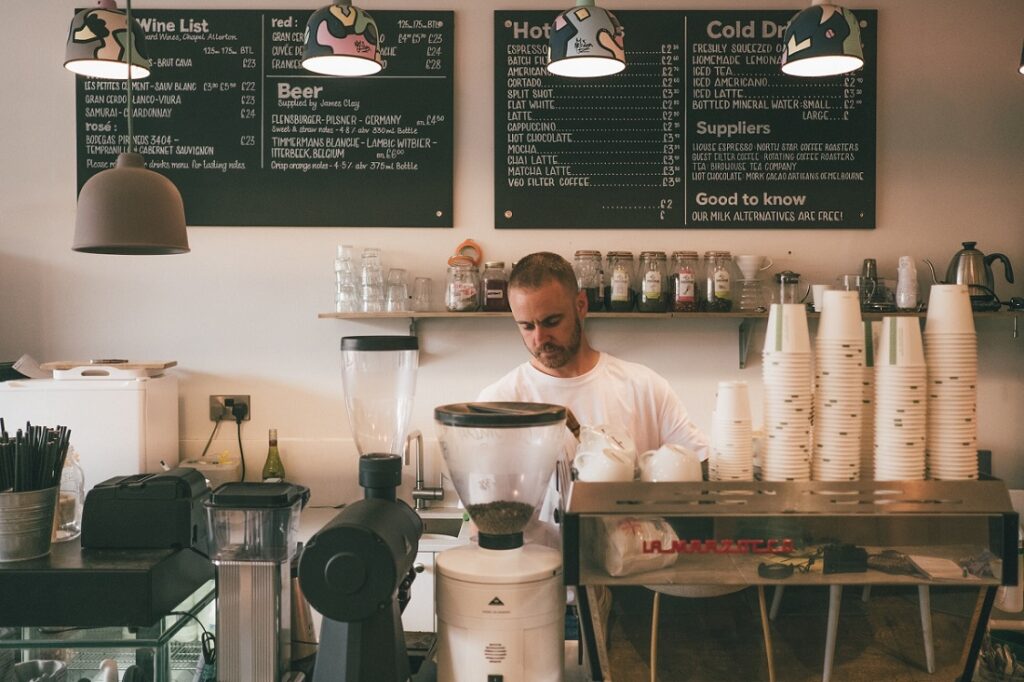Welcome back to the series dedicated to the “Actors of Sustainability”, a course developed by Professor Julien Schmitt to give ESCP students the opportunity to interview a range of professionals involved in the sustainability transition. For this article, three students spoke to Valerie Thobois, corporate social responsibility (CSR) consultant and the founder of LAMPE – Marketing Eclairant.
Among the different stakeholders, business-consulting firms have an important role to play in the sustainability transition. They are key players to accompany firms and brands in their transformation and monitor their performance in regard to the famous environmental, social and governance (ESG) norms.
To know more about this role, Pauline Dujet, Margaux Bouillet and Simeng Jiang, interviewed Valérie Thobois to learn about her personal journey toward sustainability and how she contributes to the sustainability transition through her consulting company.
A personal journey toward sustainability
After graduating from ESCP, Valérie Thobois started a career in marketing, during which she occupied several marketing positions in multinational groups of different sectors, from mass consumption with Colgate to the luxury sector with Chanel. Then a change occurred in her life:
“I took a professional break to do the most difficult but also the most beautiful job ever: taking care of my daughters. In 2008, following the Grenelle de l’environnement, conversations around sustainable development in public and professional spheres exploded in France. I got hooked on this incursion of ecological and social issues in the business world and could not see myself going back to work to sell as many lipsticks as possible.” While it took several “floating years” to allow her ideas and project to mature, Valérie eventually decided to enter a new professional chapter by joining the MBA in Marketing for Sustainability at the Léonard de Vinci Institute in Paris.
In 2014, Valérie created her own consulting company in marketing & CSR called LAMPE – Marketing Eclairant. “I chose entrepreneurship for freedom. It allows you to have an eye on everything and to make your own decisions. On top of that, consulting allows you to meet people from various profiles and avoid going to the same office every day.” Mixing both consulting and entrepreneurship, she can conduct her missions in her own way.
I got hooked by this incursion of ecological and social issues in the business world and could not see myself going back to work to sell as many lipsticks as possible.
LAMPE’s commitment to sustainable development
Valérie has three main activities: teaching and training, evaluating (AFNOR) and consulting. Regarding consulting, Valérie chose from the start to address small to medium enterprises (SMEs): “Today, all SMEs feel urged to pursue CSR because all of their business clients request it. However, unlike big companies who can develop an internal CSR department, many SMEs do not have the means to allocate a budget or to build internal knowledge to tackle their sustainability transition.”
However, firms belonging to this key economic network also have to implement a sustainability strategy in order to meet specific requirements to be considered as potential suppliers for firms that have ESG duties to fulfill.
Working with SMEs also allows one to develop a broader vision for a firm’s transition: “When working with small companies, you can really help build an entire CSR strategy, implement the appropriate KPIs, and follow your clients as they see their performance evolve in the long run.” On top of that, it often feels more rewarding to work with SMEs because they are quicker to change compared to multinationals, which have very long decision chains.
Each client has their own way of approaching CSR, and it is important to acknowledge this vision as a first step to implementing a real, serious and ambitious CSR strategy. Most of the managers Valérie meets expect her to focus on how to cut energy costs or to improve waste management. But after a while, their visions of sustainability broaden and they understand other sustainability issues, such as the critical risks in terms of internal communication and management risks.
“I’ve seen many managers evolve. First, they wanted a strategy with no cost and no complexity and, gradually, they became proud of investing to take matters into their own hands and to see their impact improving.”
Today, all SMEs feel urged to pursue CSR because all of their business clients request it. However, unlike big companies who can develop an internal CSR department, many SMEs do not have the means to allocate a budget or to build internal knowledge to tackle their sustainability transition.
The importance of sustainable norms
Sustainability must be measured and assessed using objective tools and metrics. That’s why Valérie has been an evaluator for the AFNOR, which assures the French standardization system since 2021. “An evaluation process starts with an initial audit; and some years later, the same evaluator comes back to check whether there has been some enduring improvement.”
Valérie evaluates companies based on the ISO26000 certification: “It evaluates a company on seven central principles that are key to implementing a CSR strategy: governance, human rights, working conditions, community development, fair practices, consumer protection, and contribution to local communities.” When she evaluates a company, Valérie describes the firm’s maturity level regarding the norms but also shares ideas and best practices to improve the firm on each dimension.
We have to face the truth about climate change if we want to act upon it
Valérie has a realistic but also voluntarist vision of the future: “Clearly, the trends described by the IPCC do not look good for the near future. To fight that anxiety, the only way is action. And the best way to change is to begin, even with small actions and small businesses. Better done than perfect, initiate your transformation now, and ‘talk the walk’ to correct what is not working while changing.”
